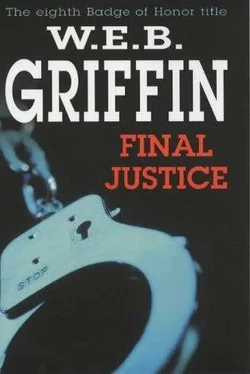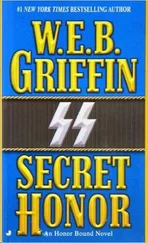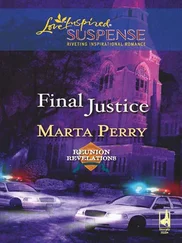W. Griffin - Final Justice
Здесь есть возможность читать онлайн «W. Griffin - Final Justice» весь текст электронной книги совершенно бесплатно (целиком полную версию без сокращений). В некоторых случаях можно слушать аудио, скачать через торрент в формате fb2 и присутствует краткое содержание. Жанр: Полицейский детектив, на английском языке. Описание произведения, (предисловие) а так же отзывы посетителей доступны на портале библиотеки ЛибКат.
- Название:Final Justice
- Автор:
- Жанр:
- Год:неизвестен
- ISBN:нет данных
- Рейтинг книги:3 / 5. Голосов: 1
-
Избранное:Добавить в избранное
- Отзывы:
-
Ваша оценка:
- 60
- 1
- 2
- 3
- 4
- 5
Final Justice: краткое содержание, описание и аннотация
Предлагаем к чтению аннотацию, описание, краткое содержание или предисловие (зависит от того, что написал сам автор книги «Final Justice»). Если вы не нашли необходимую информацию о книге — напишите в комментариях, мы постараемся отыскать её.
Final Justice — читать онлайн бесплатно полную книгу (весь текст) целиком
Ниже представлен текст книги, разбитый по страницам. Система сохранения места последней прочитанной страницы, позволяет с удобством читать онлайн бесплатно книгу «Final Justice», без необходимости каждый раз заново искать на чём Вы остановились. Поставьте закладку, и сможете в любой момент перейти на страницу, на которой закончили чтение.
Интервал:
Закладка:
“Why’s that?”
“Intuition,” Washington said. “Nothing concrete.”
“Your intuition is… what? Legendary?”
“That has been said,” Washington said, smiling, then added, “I just have the feeling, Mick. I really hope I’m wrong.”
“I got a couple of shots of the bodies, too,” O’Hara said, and handed him the manila envelope.
Washington looked at them, then raised his eyes to O’Hara.
“I presume that these will shortly appear in the Bulletin?”
“I cleaned them up some,” O’Hara said. “But yeah, they will.”
Washington took O’Hara’s meaning.
“Thank you, Mickey.”
O’Hara gave a deprecating shrug.
“Buy you a cup of decent coffee, Jason?”
“Cafe Royal? In the Four Seasons?”
“Why not? The Bulletin’s paying.”
“Then I accept your kind offer,” Washington said.
TWO
Office of the Deputy Commissioner (Patrol) Police Administration Building Eighth amp; Race Streets, Philadelphia, Pennsylvania Thursday, 7:45 A.M.
When Deputy Commissioner (Patrol) Dennis V. Coughlin, a tall, heavyset, ruddy-faced man who still had all of his curly silver hair and teeth at age fifty-nine, walked into his office on the third floor of the Police Administration Building, he saw that there were three documents on his desk demanding his immediate attention.
They were in the center of his leather-bound desk blotter, held in place by a heavy china coffee mug bearing the logotype of the Emerald Society, a fraternal organization of police officers of Irish heritage.
Denny Coughlin had joined “The Emerald” thirty-seven years before, right after graduation from the Police Academy and coming on the job, and had twice served as its president.
Coughlin peeled off the double-breasted jacket of his well-tailored dark blue suit as he walked toward his closet, exposing a Smith amp; Wesson snub-nosed. 38 Special revolver worn, butt forward, on his right side.
Except for those rare times over the years when he wore a uniform, Denny Coughlin had slipped that same pistol’s holster onto his belt every morning for thirty-three years, since the day he had reported on the job as a rookie detective.
He hung his jacket carefully on a hanger in his closet, closed the door, and turned to his desk.
Captain Francis Xavier Hollaran, an equally large Irishman who at forty-nine still had all of his teeth but not very much left from what had once been a luxurious mop of red hair, entered the room carrying a stainless-steel thermos of coffee.
“I went by Homicide,” he greeted the commissioner. “Nothing that’s not in there.”
Hollaran indicated with a nod of his head the documents on the green blotter on Coughlin’s desk.
“It’s only nine hours,” Coughlin replied. “They’ll get something soon.” He paused, then added, “Jesus Christ, won’t they ever learn?”
“Wolf, wolf, boss,” Frank Hollaran said. “You answer so many calls like that that are false alarms, you get careless.”
“And dead,” Coughlin said, more than a little bitterly.
Two of the documents on the green blotter under the Emerald Society mug detailed the events surrounding the death on duty of Officer Kenneth J. Charlton of the First District. (In Philadelphia, “districts” are what are called “precincts” in many other major police departments.)
One was an “Activities Sheet,” which listed every move detectives of the Homicide Bureau had made in the case, including a listing of every interview conducted. The Activities Sheet was a “discoverable document,” which meant it would have to be made available to the defense counsel of anyone brought to trial in the case. Attached to it was a teletype message known as a “white paper,” which was a less formal, less precise report. As an unofficial, internal memorandum, the white paper was not “discoverable.” The two documents together presented the details of the case as it had so far developed.
According to them, Officer Charlton had, at 11:26 the previous evening, responded to a radio report of a robbery in progress at the Roy Rogers restaurant at South Broad and Snyder Streets in South Philadelphia. That was a fact and was listed on the Activities Sheet. It was also a fact that Officer Charlton had not waited for backup to arrive before going into the restaurant.
The white paper theorized that Officer Charlton had been close to the scene when the call came, and had probably decided that he would have backup within a minute or two, but that waiting for it before entering the restaurant would give the robbers a chance to escape. It was further theorized that the doers had probably seen his patrol car coming. Charlton had been on the job seventeen years, and if he had used his siren and flashing lights at all, he was experienced enough to have turned them off before getting close to the scene. One of the doers had then ducked behind the cashier’s counter, waited until Officer Charlton started to come behind the register, then grabbed him and held him while the other doer had shoved a pistol under Charlton’s body armor and fired and shot him in the spine.
After the doer who had grabbed Charlton had paused long enough to fire two shots at Charlton’s body, both doers had then fled from the restaurant. An autopsy might be able to determine if the first shot had killed Charlton, or whether he had still been alive when the second doer had shot him twice again.
It was splitting legal hairs.
Under Paragraph 250l(a) of the Criminal Code of Pennsylvania, Criminal Homicide is defined as the act of intentionally, knowingly, recklessly, or negligently causing the death of another human being.
Paragraph 2502(b) of the Criminal Code of Pennsylvania further defines Criminal Homicide to be Murder of the Second Degree when the offense is committed by someone engaged as the principal, or an accomplice, in the perpetration of a felony. Armed robbery is a felony.
So if it was determined that Officer Charlton died immediately as a result of being shot by Doer Number One at the cash register, Doer Number Two was guilty of the crime of Murder in the Second Degree because the act occurred while he was an accomplice in the commission of a felony.
If Officer Charlton was still alive when Doer Number Two shot him twice again, killing him, then Doer Number Two was guilty of Murder in the Second Degree because he was the principal, and Doer Number One was guilty as the accomplice.
The Activities Sheet reported that by the time other police arrived at the scene, both Doer Number One and Doer Number Two had disappeared into the night and that a very poor-quality photograph had been taken of them as they left the scene by a citizen, and turned over to the Homicide Bureau.
Both Commissioner Coughlin and Captain Hollaran were familiar with all the details in the report on Coughlin’s desk. They had been at the Roy Rogers before Officer Charlton’s body had been taken away by the coroner.
There was a standing operating procedure that Commissioner Coughlin-who exercised responsibility for all the patrol functions of the department-would be immediately notified in a number of circumstances, whatever the hour. Those circumstances included the death of a police officer on duty.
There was an unofficial standing operating procedure understood and invariably applied by the police dispatchers. Whenever a call came in asking to be connected with Deputy Commissioner Coughlin so that he could be notified of the death of a police officer on duty-or something of almost as serious a nature-Captain F. X. Hollaran was notified first.
After he was notified of such an incident, Hollaran would wait a minute or two-often using the time to put on his clothing and slip his Smith amp; Wesson snub-nose into its holster-and then call Coughlin’s private and unlisted number to learn from Coughlin whether he wanted to be picked up, or whether he would go to the scene himself, or whether there was something else Coughlin wanted him to do.
Читать дальшеИнтервал:
Закладка:
Похожие книги на «Final Justice»
Представляем Вашему вниманию похожие книги на «Final Justice» списком для выбора. Мы отобрали схожую по названию и смыслу литературу в надежде предоставить читателям больше вариантов отыскать новые, интересные, ещё непрочитанные произведения.
Обсуждение, отзывы о книге «Final Justice» и просто собственные мнения читателей. Оставьте ваши комментарии, напишите, что Вы думаете о произведении, его смысле или главных героях. Укажите что конкретно понравилось, а что нет, и почему Вы так считаете.











